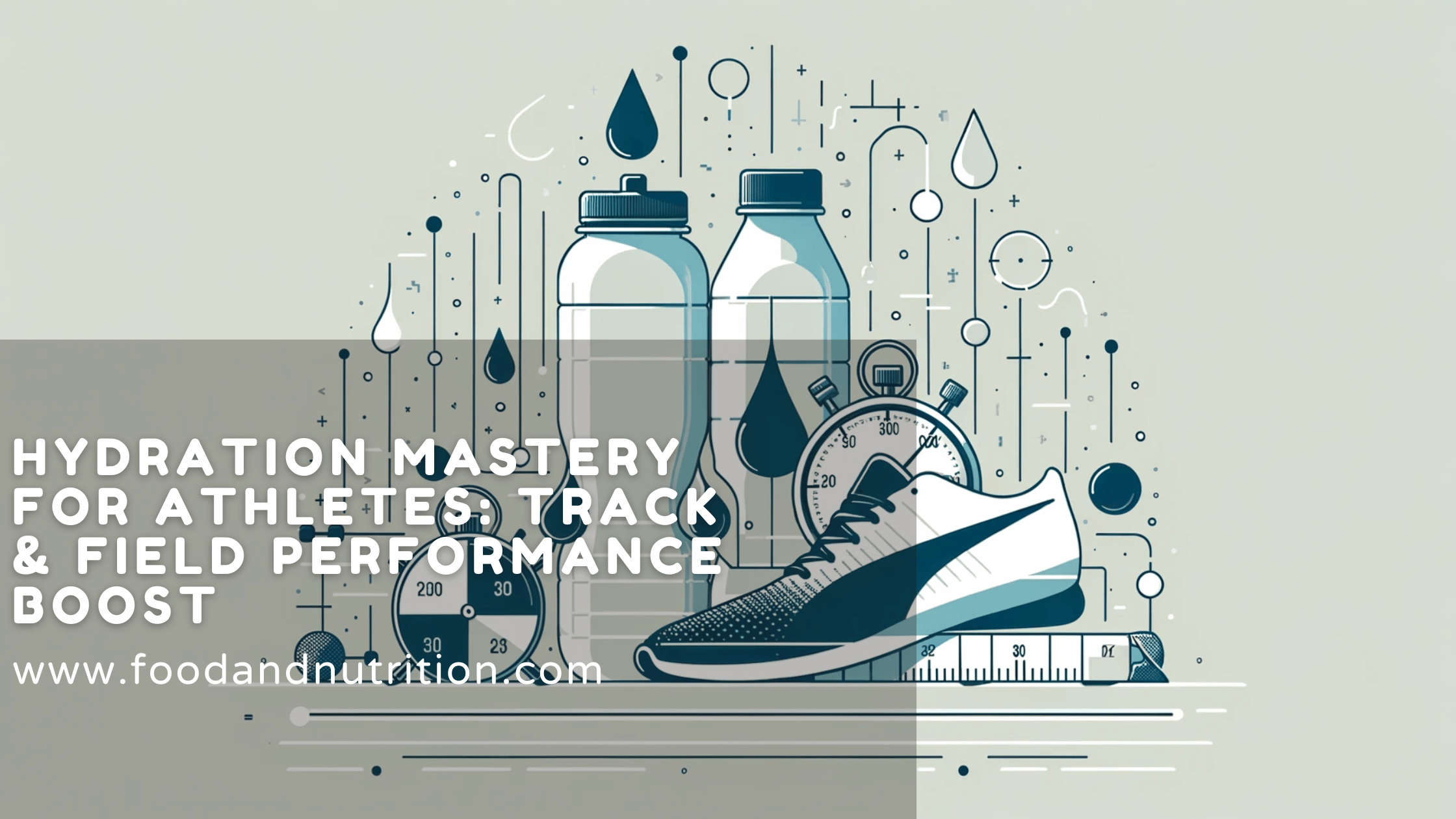Hydration Mastery for Athletes: Track & Field Performance Boost

In the world of sports, nutrition and hydration are pivotal, yet the latter often takes a backseat, despite its crucial role in athletic performance. For track and field athletes, where every second and step matters, mastering hydration can make the difference between achieving a personal best and falling short. This guide delves into the nuances of proper hydration, tailored for the rigorous demands of track and field. We aim to illuminate the science behind hydration and its vital role in training. Join us as we explore the risks of dehydration, provide individualized strategies, and offer practical tips for seamless integration into your daily routine.
Whether sprinting, long jumping, or enduring a cross-country race, optimal hydration is key to unlocking your full potential. Armed with expert insights and athlete experiences, this guide is your resource for hydration strategies that enhance performance and athletic achievement. Embark on this journey to hydration mastery and stay a sip ahead in your track and field endeavors.
Understanding Hydration and the Body
Hydration is about maintaining fluid balance, essential for every cell, tissue, and organ. For athletes, hydration’s significance is magnified. Water, comprising about 60% of body weight, is vital for regulating body temperature, nutrient transportation, and waste removal. During track and field events, fluid loss through sweat must be replenished to maintain performance and prevent dehydration’s adverse effects. Proper hydration is a cornerstone of peak performance, aiding endurance, strength, and concentration, and ensuring muscle and joint functionality. From sprints to long-distance runs, your body’s hydration level significantly influences performance and recovery.
The Risks of Dehydration in Athletes
Dehydration, more than a mere thirst, can significantly impair physical and mental performance. Recognizing early signs like fatigue, coordination loss, and muscle cramps is crucial, especially in prolonged events or heat. Even a slight dehydration level, as little as 2-3% body weight loss, can noticeably affect endurance and concentration. Dehydration can lead to serious heat-related illnesses and hinder recovery, affecting subsequent training. Understanding these risks is the first step in effective hydration management.
Individualized Hydration Strategies
Each athlete’s body and hydration needs are unique. Tailoring your strategy to the intensity, duration, and frequency of your training is crucial. High-intensity or long sessions and environmental factors like heat and humidity call for increased fluid intake. Monitoring hydration, such as observing urine color (aiming for pale yellow) and tracking weight changes, is key. Establish a baseline fluid intake and adjust according to your training and conditions. Remember, hydration is about water and electrolytes balance. Incorporate sports drinks or supplements as needed, especially for ‘salty sweaters’ or during intense sessions.
Hydration Guidelines: Before, During, and After Training
Timing and quantity are crucial in effective hydration. Begin pre-hydration 2-3 hours before training with 16 ounces of water, followed by 8 ounces 15 minutes before. During training, aim for 7-10 ounces every 10-20 minutes, adjusting for workout intensity and conditions. Post-training, focus on rehydrating with 16-24 ounces of fluid for every pound lost. Electrolyte-rich drinks or foods are important after intense or lengthy workouts for muscle recovery and cramp prevention. Use these guidelines as starting points and fine-tune them to your personal experiences and training needs.
Practical Tips for Everyday Hydration
Hydration is a daily commitment. Keep a water bottle with you at all times and set reminders to drink regularly. Include 1-2 cups of water with each meal and incorporate water-rich foods into your diet. Hydrate well before training and replenish fluids immediately afterward. Regularly check urine color and listen to your body’s thirst signals. Experiment with different fluids like herbal teas, coconut water, or milk, and consider recovery drinks after intense training.
Conclusion
Hydration is a silent yet powerful ally in track and field. This guide has outlined the importance of effective hydration in performance and recovery. Remember, hydration is a personal journey. Listen to your body, understand its needs, and respond with a tailored strategy. Use these insights as a starting point, experiment, and find what works best for you. Make hydration a conscious part of your routine for a healthier, more vibrant life. Share your hydration stories and experiences in the comments below, and let’s grow together in our athletic pursuits. Staying hydrated is not just a recommendation – it’s a necessity for peak performance in track and field.
Stay hydrated, stay healthy, and continue striving for excellence.
- Eating Your Way to Healthy Blood Pressure: A Guide to Lowering Hypertension
- Unlock the Flavor: The Ultimate Guide to Cooking Salts
- Hydration Mastery for Athletes: Track & Field Performance Boost
- Salt & Heart Health: Unveiling the Truth Behind Sodium Intake
- Boost Immunity with Nordic Diet: A Guide for Healthier Living
- Tackling Obesity: Practical Strategies for Healthier Lives